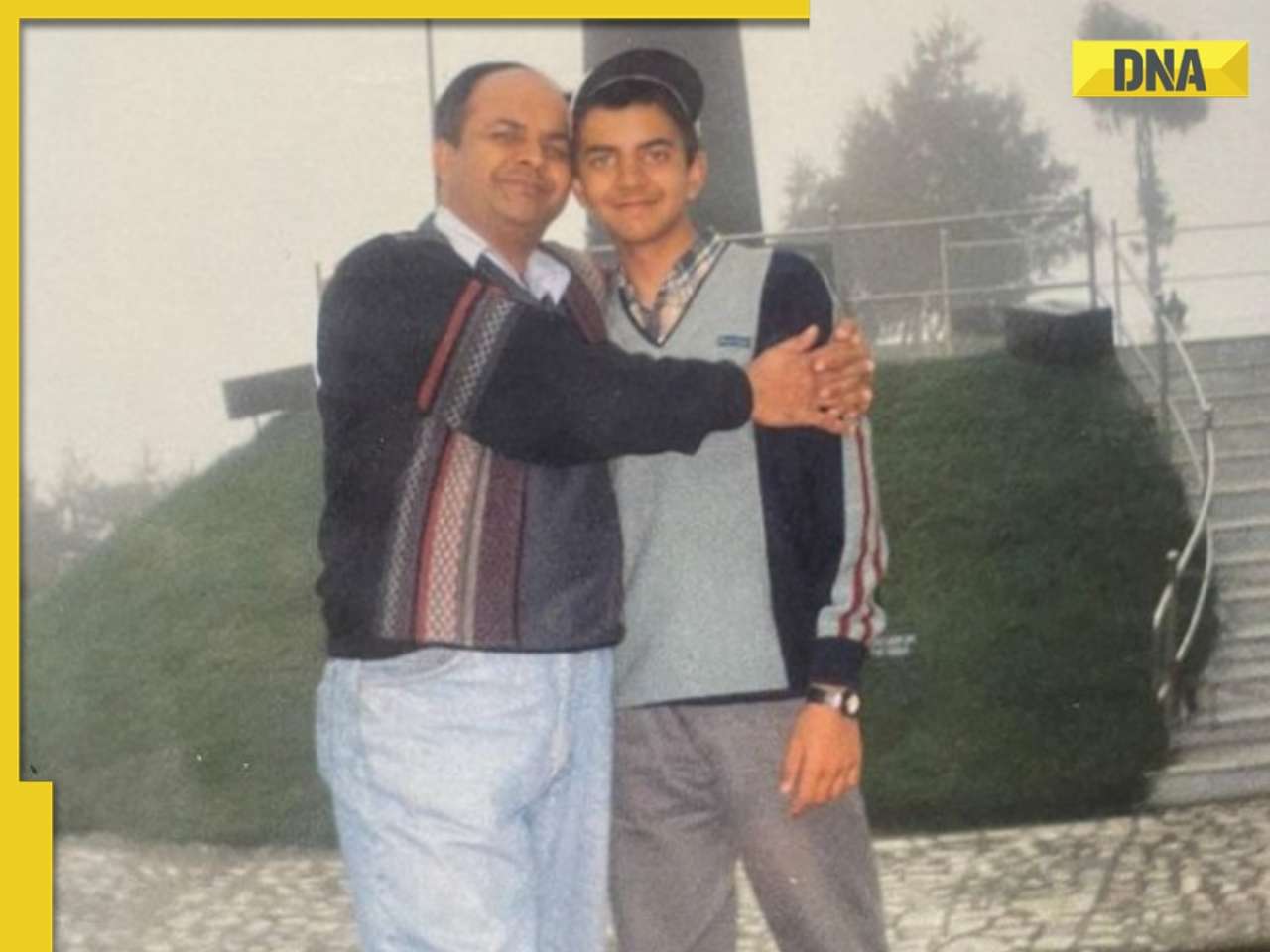Stockbrokers are closing branches and cutting manpower to stay afloat even as falling returns, lack of new investors, and high taxes make survival difficult.
Cold winds arising from the global downturn continue to blow through Indian bourses, threatening the very survival of many stockbrokers. Trade volumes have gone down and brokerage fees are falling even as taxes and operating costs continue to rise.
To give an idea of how bad the situation in the marker is, three years back, an IPO was launched almost every alternate day. In 2009-10, Rs46,941 crore were raised from the market through IPOs. This fell by around 80% to a mere Rs10,471 crore in 2011-12. In the last three years, falling returns on investment has pushed even mutual fund companies to the wall and have caused an 8% decline in their total asset under management (AUM).
The continuing slump has had an adverse impact on stockbrokers across the country, forcing many to take harsh measures to ride out the prolonged bear run. Gujarat-based brokers are, of course, no less affected. They too have been forced to close branches and cut manpower size at their establishments merely to stay in business.
In Ahmedabad, business and margins of stockbrokers are believed to have shrunk by 80%. Anil Shah, trading member director of Bombay Stock Exchange and director of the broking firm Span Caplease, said that, three years back, there were more than 4,000 jobbers and arbitragers in Ahmedabad but today only 800 are left.
He further said that the securities transaction tax (STT) levied by the Central government had added to the plight of stockbrokers and had contributed to the steady decline in their business.
Sources in the market confirmed that many brokerage houses had curtailed their operations in Gujarat and even at the national level. President of BSE Brokers' Forum, Alok Churiwala, said that some brokers have close their branches in a number of locations and shifted to the franchise model for operations in these areas.
"The pain is everywhere," he said.
The sources said that Mangal Keshav Broking had shut down operations, and Alchemy Shares and Stock Brokers had closed its institutional equity business. Angel Broking and Tower Capital have downsized their operations, the sources added.
The overall volume of trade in the cash segment of the equity market is down by 43% in comparison to 2009-10. Brokerage charges are down by 50% to 1-3 paisa per trade. Activity in primary market is very low as secondary market conditions are not right, the sources said.
In the last nine months, the market has witnessed wide swings on both sides. "Most investors are not willing to risk investing in the marker or participating in it," said associate vice-president, India Infoline, Mahendra Prajapati.
The situation is gloomy for equity brokerage houses of all types and sizes. Ketan Marwadi, of Marwadi Shares, one of largest stockbrokers in the country, also confirmed that business had suffered. "In comparison to last year, our volume is down by 14%. We have cut operating costs for the time being," he said.
In Rajkot, SKSE Securities Limited is one of the largest depository participants and has the widest ne twork of trading terminals. "We are witnessing a decline in volume. Number of physical trades in demat services are down by 30% and volume in the equity market is down by 25%," said Ashok Koyani, CEO of SKSE Securities Limited.
He further added that, compared to a year ago, opening of new demat accounts was down by 90%. "New retail investors are absent from the market as the IPO pipeline has dried up. The secondary market is volatile and people have lost money on IPOs in the last two years," Koyani said.
As per exchange data, of the 45 IPOs that hit the market between January 2011 and May 2012, only 13 (or 28%) gave positive returns to the investor at Wednesday's closing price. The Bombay Stock Exchange's IPO Index, an indicator of the performance of IPOs on the exchange, is down by 22% from May 2011.
Mutual Funds are a passive method of investment in the financial markets. Investor interest in growth or equity schemes has also been declining. According to data available on SEBI's website, the Net Assets under Management (AUM) of all mutual funds in the country has been declining for the last three years.
Between March 2010 and March 2012, the AUM of mutual funds declined by Rs. 16045 crore. Total folios registered with mutual funds stood at 4.09 crore at the end of March 2010. This declined to 3.75 crore at the end of March 2012, a fall of 34 lakh folios.
Deposit-Based Membership
A year-and-half ago, the BSE launched a scheme to attract smaller brokers. Under a deposit-based membership scheme, even small brokers could become direct members of the exchange. It was hoped that the scheme would increase the reach of the exchange to smaller places.
"Some 400 firms have become deposit-based members. These firms were earlier either operating as sub-brokers, franchisees of larger firms or were high networth individual clients. Those who have started operations as pure brokerage firms are in trouble as volumes are down," said Churiwala.
However, some deposit-based brokerage houses have also had to curtail their operations as they found it difficult to make ends meet. One such broker said on the condition of anonymity that they had not been able to generate enough business to recover their daily operating expenses. "Hence, we closed some branches and also reduced our employee strength," he said.
Bansal Wealth Creators, a Bhavnagar-based deposit-based member of the BSE also had to curtail its operations. "We closed 5 out of our 15 branches as there was not enough business to sustain them," said Sanjay Kotak, CEO, Bansal Wealth Creators.
![submenu-img]() Anant Raj Ventures into tier 2 and tier 3 cities, pioneering growth in India’s real estate sector
Anant Raj Ventures into tier 2 and tier 3 cities, pioneering growth in India’s real estate sector![submenu-img]() Sophie Turner reveals she wanted to terminate her first pregnancy with Joe Jonas: 'Didn't know if I wanted...'
Sophie Turner reveals she wanted to terminate her first pregnancy with Joe Jonas: 'Didn't know if I wanted...'![submenu-img]() Meet outsider who was given no money for first film, battled depression, now charges Rs 20 crore per film
Meet outsider who was given no money for first film, battled depression, now charges Rs 20 crore per film![submenu-img]() This is owner of most land in India, owns land in every state, total value is Rs...
This is owner of most land in India, owns land in every state, total value is Rs...![submenu-img]() Meet man who built Rs 39832 crore company after quitting high-paying job, his net worth is..
Meet man who built Rs 39832 crore company after quitting high-paying job, his net worth is..![submenu-img]() Meet woman who first worked at TCS, then left SBI job, cracked UPSC exam with AIR...
Meet woman who first worked at TCS, then left SBI job, cracked UPSC exam with AIR...![submenu-img]() Meet engineer, IIT grad who left lucrative job to crack UPSC in 1st attempt, became IAS, married to an IAS, got AIR...
Meet engineer, IIT grad who left lucrative job to crack UPSC in 1st attempt, became IAS, married to an IAS, got AIR...![submenu-img]() Meet Indian woman who after completing engineering directly got job at Amazon, then Google, Microsoft by using just...
Meet Indian woman who after completing engineering directly got job at Amazon, then Google, Microsoft by using just...![submenu-img]() Meet man who is 47, aspires to crack UPSC, has taken 73 Prelims, 43 Mains, Vikas Divyakirti is his...
Meet man who is 47, aspires to crack UPSC, has taken 73 Prelims, 43 Mains, Vikas Divyakirti is his...![submenu-img]() IIT graduate gets job with Rs 100 crore salary package, fired within a year, he is now working as…
IIT graduate gets job with Rs 100 crore salary package, fired within a year, he is now working as…![submenu-img]() DNA Verified: Is CAA an anti-Muslim law? Centre terms news report as 'misleading'
DNA Verified: Is CAA an anti-Muslim law? Centre terms news report as 'misleading'![submenu-img]() DNA Verified: Lok Sabha Elections 2024 to be held on April 19? Know truth behind viral message
DNA Verified: Lok Sabha Elections 2024 to be held on April 19? Know truth behind viral message![submenu-img]() DNA Verified: Modi govt giving students free laptops under 'One Student One Laptop' scheme? Know truth here
DNA Verified: Modi govt giving students free laptops under 'One Student One Laptop' scheme? Know truth here![submenu-img]() DNA Verified: Shah Rukh Khan denies reports of his role in release of India's naval officers from Qatar
DNA Verified: Shah Rukh Khan denies reports of his role in release of India's naval officers from Qatar![submenu-img]() DNA Verified: Is govt providing Rs 1.6 lakh benefit to girls under PM Ladli Laxmi Yojana? Know truth
DNA Verified: Is govt providing Rs 1.6 lakh benefit to girls under PM Ladli Laxmi Yojana? Know truth![submenu-img]() In pics: Taarak Mehta Ka Ooltah Chashmah actress Deepti Sadhwani dazzles in orange at Cannes debut, sets new record
In pics: Taarak Mehta Ka Ooltah Chashmah actress Deepti Sadhwani dazzles in orange at Cannes debut, sets new record![submenu-img]() Ananya Panday stuns in unseen bikini pictures in first post amid breakup reports, fans call it 'Aditya Roy Kapur's loss'
Ananya Panday stuns in unseen bikini pictures in first post amid breakup reports, fans call it 'Aditya Roy Kapur's loss'![submenu-img]() Remember Harsh Lunia? Just Mohabbat child star, here's how former actor looks now, his wife is Bollywood's popular...
Remember Harsh Lunia? Just Mohabbat child star, here's how former actor looks now, his wife is Bollywood's popular...![submenu-img]() Mother's Day 2024: Bollywood supermoms who balance motherhood, acting, and run multi-crore businesses
Mother's Day 2024: Bollywood supermoms who balance motherhood, acting, and run multi-crore businesses![submenu-img]() Rocky Aur Rani's Golu aka Anjali Anand shocks fans with drastic weight loss without gym, says fitness secret is...
Rocky Aur Rani's Golu aka Anjali Anand shocks fans with drastic weight loss without gym, says fitness secret is...![submenu-img]() Haryana Political Crisis: Will 3 independent MLAs support withdrawal impact the present Nayab Saini led-BJP government?
Haryana Political Crisis: Will 3 independent MLAs support withdrawal impact the present Nayab Saini led-BJP government?![submenu-img]() DNA Explainer: Why Harvey Weinstein's rape conviction was overturned, will beleaguered Hollywood mogul get out of jail?
DNA Explainer: Why Harvey Weinstein's rape conviction was overturned, will beleaguered Hollywood mogul get out of jail?![submenu-img]() What is inheritance tax?
What is inheritance tax?![submenu-img]() DNA Explainer: What is cloud seeding which is blamed for wreaking havoc in Dubai?
DNA Explainer: What is cloud seeding which is blamed for wreaking havoc in Dubai?![submenu-img]() DNA Explainer: What is Israel's Arrow-3 defence system used to intercept Iran's missile attack?
DNA Explainer: What is Israel's Arrow-3 defence system used to intercept Iran's missile attack?![submenu-img]() Sophie Turner reveals she wanted to terminate her first pregnancy with Joe Jonas: 'Didn't know if I wanted...'
Sophie Turner reveals she wanted to terminate her first pregnancy with Joe Jonas: 'Didn't know if I wanted...'![submenu-img]() Meet outsider who was given no money for first film, battled depression, now charges Rs 20 crore per film
Meet outsider who was given no money for first film, battled depression, now charges Rs 20 crore per film![submenu-img]() Meet actress who quit high-paying job for films, director replaced her with star kid, had no money, now lives in...
Meet actress who quit high-paying job for films, director replaced her with star kid, had no money, now lives in...![submenu-img]() This star kid's last 3 films lost Rs 5000000000 at box office, has no solo hit in 5 years, now has lost four films to...
This star kid's last 3 films lost Rs 5000000000 at box office, has no solo hit in 5 years, now has lost four films to...![submenu-img]() Meet actress viral for just walking on screen, belongs to royal family, has no solo hit in 15 years, but still is…
Meet actress viral for just walking on screen, belongs to royal family, has no solo hit in 15 years, but still is…![submenu-img]() This is owner of most land in India, owns land in every state, total value is Rs...
This is owner of most land in India, owns land in every state, total value is Rs...![submenu-img]() Blinkit now gives free dhaniya with veggie orders, thanks to Mumbai mom
Blinkit now gives free dhaniya with veggie orders, thanks to Mumbai mom![submenu-img]() Meet man, an Indian who entered NASA's Hall of Fame by hacking, earlier worked on Apple's...
Meet man, an Indian who entered NASA's Hall of Fame by hacking, earlier worked on Apple's...![submenu-img]() 14 majestic lions cross highway in Gujarat's Amreli, video goes viral
14 majestic lions cross highway in Gujarat's Amreli, video goes viral![submenu-img]() Here's why Isha Ambani was not present during Met Gala 2024 red carpet
Here's why Isha Ambani was not present during Met Gala 2024 red carpet






















































)
)
)
)
)
)